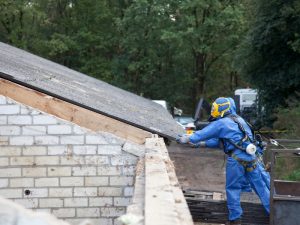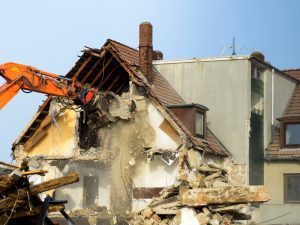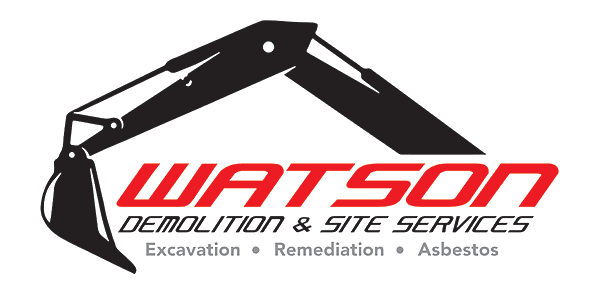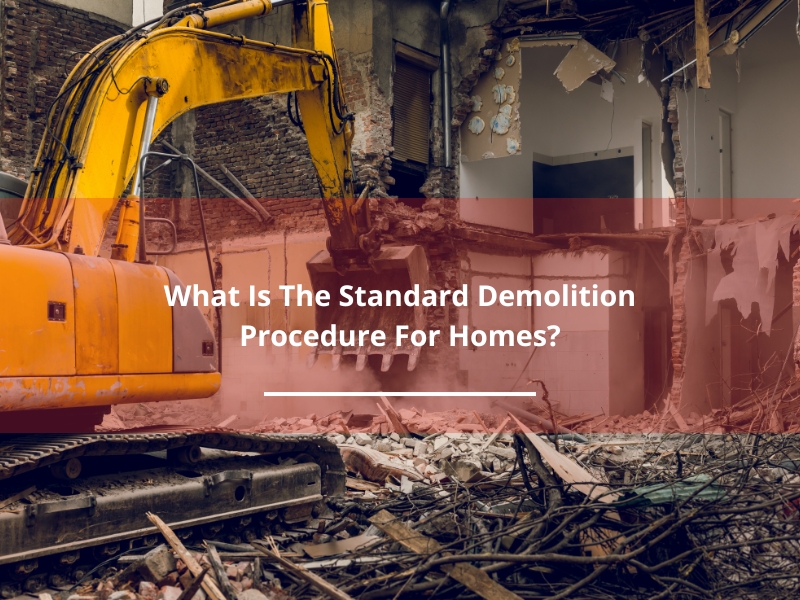Demolishing a home is a complex process that involves detailed planning, safety measures, and the right equipment. Whether you’re making way for a new build, dealing with unsafe structures, or renovating on a large scale, understanding the steps involved in a standard home demolition is crucial. This article will break down each phase of the demolition procedure, focusing on the expertise and services offered by Watson Demolition & Site Services.
What does the home demolition procedure involve?
The home demolition process consists of several key steps. Each stage must ensure the project runs smoothly and meets safety and environmental standards. Here’s an overview of what a typical home demolition entails:
- Initial Consultation and Site Inspection: The process begins with a thorough property inspection. This helps the demolition team understand the work scope and assess potential hazards, such as asbestos.
- Permits and Approvals: Obtain necessary permits and approvals from local councils before starting demolition.
- Utility Disconnections: Disconnect all utilities, including gas, water, and electricity, to ensure safety before demolition.
- Site Preparation: Secure the area around the home and safely remove hazardous materials, such as asbestos, by licensed professionals.
- Demolition: The actual demolition can vary based on the size and type of the building, but it typically involves heavy machinery such as excavators.
- Waste Removal and Site Clean-up: Following demolition, workers remove debris and make the site ready for its next phase, either excavation or construction.
How are permits and approvals handled during a demolition procedure?
One of the most crucial aspects of home demolition is obtaining the necessary permits and approvals. Failing to secure these can result in delays, fines, or legal action.
- Council Approvals: Each council in NSW has different requirements for home demolitions. Work with local authorities to ensure all permits are in place.
- Heritage Restrictions: Some homes may be subject to heritage restrictions.
- Environmental Impact Assessments: Demolitions can have ecological implications. Complete all environmental impact assessments and obtain the necessary approvals before starting work.
What preparations are needed before starting a home demolition?
Preparation is vital to ensuring a safe and efficient demolition. Here are the steps that must be taken before the first piece of machinery can begin work:
- Asbestos Inspection and Removal: Homes constructed before the late 1980s often contain hazardous asbestos. If you suspect your property may have asbestos, it’s crucial to have it inspected and removed by qualified professionals.

- Disconnecting Utilities: Disconnect electricity, gas, and water lines to prevent accidents.
- Site Clearing: Remove any obstacles, such as trees, shrubs, or unwanted structures, to ensure a smooth demolition process.
- Neighbours Notification: In some areas, it’s necessary to notify neighbours about the upcoming demolition to comply with local regulations.
How is the demolition procedure planned and scheduled?
Effective planning ensures the demolition process runs smoothly and efficiently.
- Site Survey and Risk Assessment: The first step in planning is conducting a thorough site survey. This includes assessing the building’s structure and identifying potential risks.
- Custom Demolition Plan: Every demolition is unique. The study indicates that a custom demolition plan must fit the project’s specific requirements.
- Scheduling: Timing is crucial in demolition. Careful planning ensures minimal disruption.
- Client Communication: Keep in the loop. Clear communication is essential from start to finish.
What equipment and methods are used in a standard demolition?
Specialised equipment and methods are essential for safe and efficient home demolition.
- Excavators and Bulldozers: These are the most common machines used in residential demolitions. They can tear down walls, remove debris, and level the site.
- Wrecking Balls: For larger structures, wrecking balls may be used. These heavy-duty tools can bring down entire building sections in one hit.
- Deconstruction: For homes with valuable materials, manual dismantling of certain parts may be necessary.
- Controlled Demolition: Structures near other buildings may require a more controlled approach to prevent damage to neighbouring properties.
What safety measures are taken during a home demolition?
Safety is the top priority during any demolition.
- Personal Protective Equipment (PPE): Every worker on site is provided with the necessary personal protective equipment, including helmets, gloves, and safety boots.
- Site Fencing and Signage: Fence the demolition site and post clear signs to protect the public and workers.
- Asbestos Safety: Use specialised equipment and methods to prevent harmful asbestos fibres from spreading when asbestos is present.
- Licensed Professionals: Require all employees to have training and certification that meets NSW demolition regulations to protect your team and the public
How long does a typical home demolition take?
The timeline for demolishing a home can vary based on its size and structural complexity.
- Tiny Homes: A standard single-storey home can be demolished within a week.
- Larger Homes: Multi-storey homes or properties with complex structures may take longer, usually one to two weeks.
- Site Clean-up: Expect additional time for debris removal and site preparation after demolition.

What are the costs involved in a standard home demolition?
The cost of a home demolition can vary depending on several factors.
- Size of the Home: Larger homes will naturally cost more to demolish due to the increased labour and equipment required.
- Asbestos Removal: Asbestos removal, if present, will add to the total cost.
- Site Preparation: Site clearing and excavation will also increase the demolition price.
- Waste Disposal: The cost of disposing of demolition waste is typically included in the final price, but additional charges may apply for recycling or hazardous material disposal.
Demolish your property with confidence
When demolishing a property, Watson Demolition & Site Services offers expert solutions, including asbestos removal, site preparation, and compliance with all Newcastle, Hunter Valley, Sydney, and Central Coast regulations. With a focus on safety, customer satisfaction, and quality, Watson is your go-to expert for all residential, commercial, and industrial demolition projects.
Contact Watson Demolition & Site Services today for a consultation. We will ensure that experts handle your demolition project.

